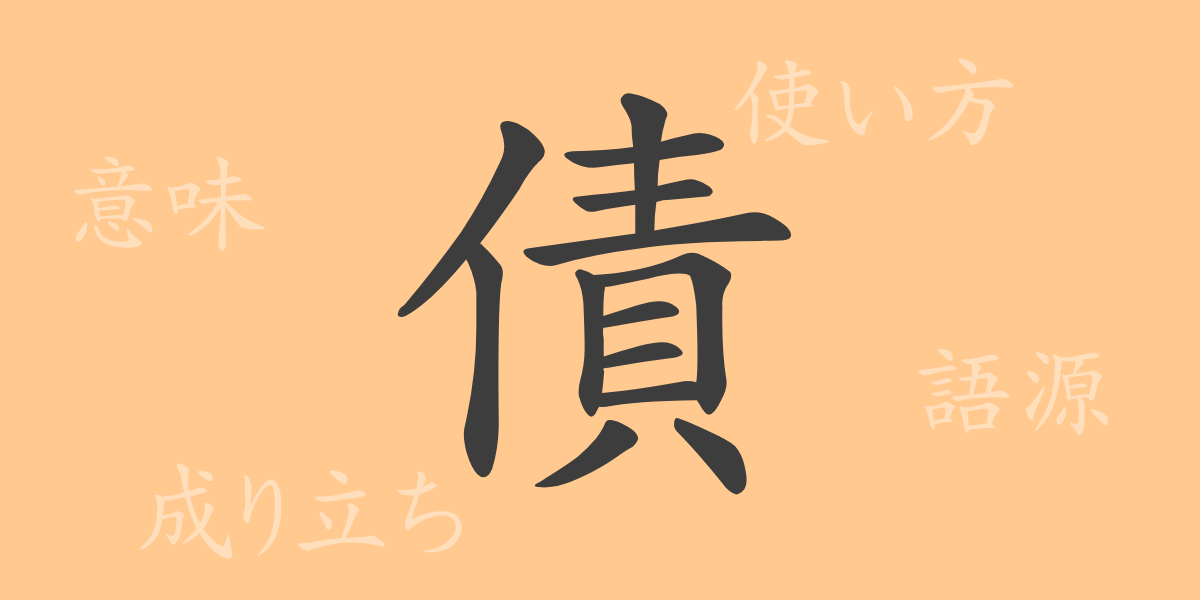The depth of Japanese written culture is reflected in each character, each carrying a long history and multiple meanings. This time, we will focus on “債” (sai), one of Japan’s common-use kanji, exploring its origins, meanings, usages, and idioms or phrases. By understanding the background of this frequently seen kanji in daily life, you can deepen your understanding of the language and enjoy the richer world of Japanese.
Etymology of 債 (sai)
The kanji “債” (sai) originates from ancient China and is formed by combining the radical “亻” (ninben, meaning person) and “責” (seki). “責” itself is composed of “貝” (kai, meaning shell or money) and the phonetic element “責” (seki), which means responsibility or duty. Therefore, “債” (sai) originally referred to a person bearing some responsibility or obligation, especially in the context of economic debt.
Meanings and Usages of 債 (sai)
The main meaning of the kanji “債” (sai) refers to debts or obligations arising from borrowing money or goods. In legal terms, it often refers to the economic duties that individuals or organizations owe to others. It is frequently used in words related to economics and law, such as “債務” (saimu, debt), “国債” (kokusai, government bond), and “債権” (saiken, credit).
Reading, Stroke Count, and Radical of 債 (sai)
The kanji “債” (sai) has a specific reading and structure in Japanese, detailed as follows:
- Reading: In the on’yomi reading, it is “サイ” (sai); there is no kun’yomi reading.
- Stroke count: 13 strokes in total.
- Radical: The radical is “亻” (にんべん, ninben).
Idioms, Phrases, and Proverbs Using 債 (sai) and Their Meanings
Idioms and phrases containing “債” (sai) each carry specific meanings and play important roles in Japanese. Here are a few examples:
- 債務 (サイム, saimu): Monetary obligations such as debt.
- 債権 (サイケン, saiken): The right to receive payments from others.
- 国債 (コクサイ, kokusai): Government bonds issued to raise funds.
- 負債 (フサイ, fusai): Debts or obligations to be paid.
These idioms are commonly used in the fields of economics and law, each holding significant importance in various aspects of Japanese society.
Conclusion on 債 (sai)
The kanji “債” (sai) represents important concepts of economic debt and obligations. Understanding its origins and meanings leads to a deeper understanding of economic and legal terms in Japanese. Additionally, idioms and phrases containing “債” (sai) are used across a broad range of fields, from personal economic activities to national finance. Knowing this kanji is a crucial step toward acquiring richer knowledge through language.

























